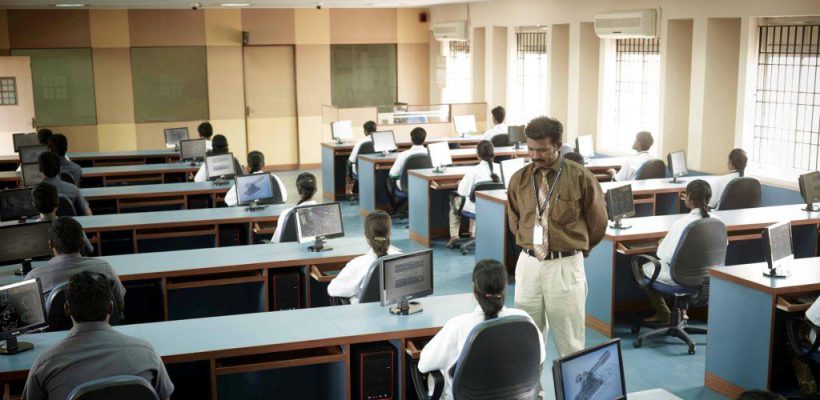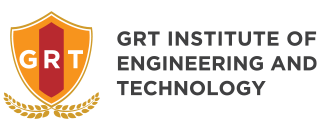
Welcome to Department of CSE
The Department of Computer Science and Engineering (CSE) was established in the year 2008 with the mission to educate students from all over India, including students from rural areas. The Department has the state-of-the-art facilities for various laboratories and Wi-Fi enabled campus to support e-Learning.
The department provides an excellent ambiance for students to learn and acquire the necessary skills required by the IT Industry. Technological innovation is so rapid in this field that continuous education is essential to enhance the skill set of students keeping in pace with the current trends.
The department has experienced faculty members who are fully committed to teaching and research. The advance curriculum requires the students to take up a broad spectrum of courses with special emphasis on desired areas of specialization. Hence, the department has brought out exceptional engineers in the past and will continue to do in the years to come. The students are actively involved in Co-curricular (CSI) and Extra Curricular (Sports and Social) activities throughout the year. The Department maintains an excellent interaction with IT industry and organizes regular guest lectures by experts, industrial visits, internships etc. and stands for industry – Institute collaboration.
The Department is renowned for cutting edge research and for imparting state of the art education. The department offers a stimulating and well-supported research and teaching environment. The department has experienced significant growth in the decade in all aspects.
Vision & Mission
Department Vision
To create proficient software professionals, academicians, researchers and entrepreneurs with moral values through quality education in the field of Computer Science and Engineering.
Department Mission
M1: To accomplish Academic excellence through innovative teaching and learning practices.
M2: Promote continuous learning environment to enhance employability and entrepreneurship.
M3: To improve the research knowledge and to address Social needs.
M4: Inculcate professional and ethical values among students.
Program Educational Objectives (PEOs)
PEO1: Apply their technical competence in computer science to solve real world problems, with technical and people leadership.
PEO2: Conduct cutting edge research and develop solutions on problems of social relevance.
PEO3: Work in a business environment, exhibiting team skills, work ethics, adaptability and lifelong learning.
Programme Outcome (PO)
PO1: Engineering knowledge: Apply the knowledge of mathematics, science, engineering fundamentals, and an engineering specialization to the solution of complex engineering problems.
PO2: Problem analysis: Identify, formulate, review research literature, and analyze complex engineering problems reaching substantiated conclusions using first principles of mathematics, natural sciences, and engineering sciences.
PO3: Design/development of solutions: Design solutions for complex engineering problems and design system components or processes that meet the specified needs with appropriate consideration for the public health and safety, and the cultural, societal, and environmental considerations.
PO4: Conduct investigations of complex problems: Use research-based knowledge and research methods including design of experiments, analysis and interpretation of data, and synthesis of the information to provide valid conclusions.
PO5: Modern tool usage: Create, select, and apply appropriate techniques, resources, and modern engineering and IT tools including prediction and modeling to complex engineering activities with an understanding of the limitations.
PO6: The engineer and society: Apply reasoning informed by the contextual knowledge to assess societal, health, safety, legal and cultural issues and the consequent responsibilities relevant to the professional engineering practice.
PO7: Environment and sustainability: Understand the impact of the professional engineering solutions in societal and environmental contexts, and demonstrate the knowledge of, and need for sustainable development.
PO8: Ethics: Apply ethical principles and commit to professional ethics and responsibilities and norms of the engineering practice.
PO9: Individual and team work: Function effectively as an individual, and as a member or leader in diverse teams, and in multidisciplinary settings.
PO10: Communication: Communicate effectively on complex engineering activities with the engineering community and with society at large, such as, being able to comprehend and write effective reports and design documentation, make effective presentations, and give and receive clear instructions.
PO11: Project management and finance: Demonstrate knowledge and understanding of the engineering and management principles and apply these to one’s own work, as a member and leader in a team, to manage projects and in multidisciplinary environments.
PO12: Life-long learning: Recognize the need for, and have the preparation and ability to engage in independent and life-long learning in the broadest context of technological change.
Program Specific Outcomes (Psos)
PSO1: Exhibit design and programming skills to build and automate business solutions using cutting edge technologies.
PSO2: Strong theoretical foundation leading to excellence and excitement towards research, to provide elegant solutions to complex problems.
PSO3: Ability to work effectively with various engineering fields as a team to design, build and develop system applications.
CSE Lecture Video Link
| S.No. | TOPIC’S | VIDEO LINK |
| 1 | CS8494-Software Engineering by Dr. N.Kamal (Prof./CSE) Topic: Introduction to Software Engineering |
VIEW |
| 2 | CS8501 Theory of Computation by Dr. S. Sathya (AP./CSE) Topic: Context free grammar |
VIEW |
| 3 | CS3491 Artificial Intelligence by Mrs. V. Priya (AP./CSE) Topic: Forward and backward chaining |
VIEW |
| 4 | CS3401 Algorithms by Dr. S. Suresh (AP./CSE) Topic- Approximation Algorithms |
VIEW |
| 5 | CS8391 Distributed Systems by Mrs. S. Kalaivani (AP./CSE) Topic: Peer to Peer(P2P) Computing |
VIEW |
CSE Lab Video Link
| S.No. | Practical Exercises | VIDEO LINK |
| 1 | 1. Implementation of Uninformed search algorithms (BFS, DFS) 2. Implementation of Informed search algorithms(A*, memory-bounded A*) 3. Implement naïve Bayes models |
VIEW |
| 2 | 4. Implement Bayesian Networks 5. Build Regression models 6. Build decision trees and random forests |
VIEW |
| 3 | 7. Build SVM models 8. Implement ensembling techniques 9. Implement clustering algorithms |
VIEW |
| 4 | 10. Implement EM for Bayesian networks 11. Build simple NN models 12. Build deep learning NN models |
VIEW |
| Content Beyond Syllabus | ||
| 5 |
|
VIEW |
Innovative Teaching & Learning
- MINI PROJECT
- LECTURE PRESENTATION
- MINIMUM LEARNING MATERIAL
- LECTURE NOTES
- PRODUCT DEVELOPMENT
- WORKING MODELS
